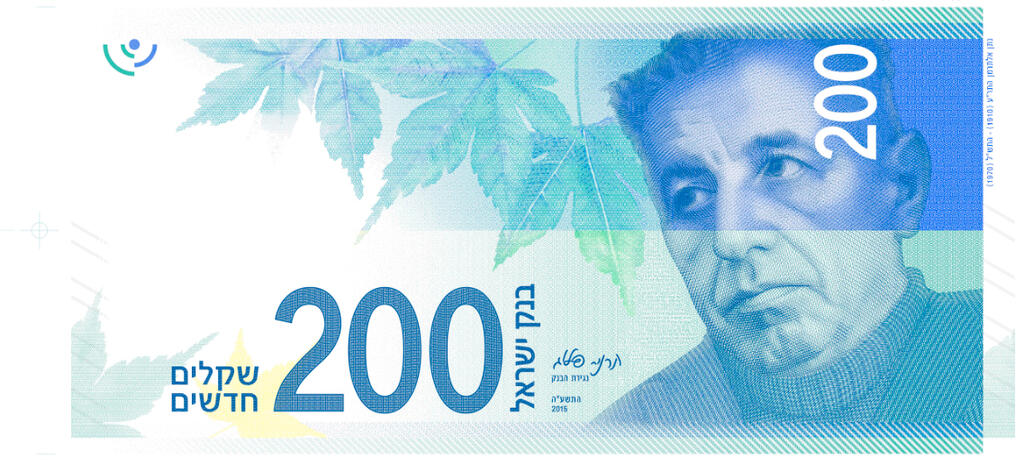Getting your Trinity Audio player ready...
The Bank of Israel has expressed reservations about Prime Minister Benjamin Netanyahu's proposal to axe the 200-shekel banknote as part of the fight against black market activity and criminal organizations in the country.
The initiative to cancel the note, currently worth a little more than $50, was suggested by a special team of nine economists who submitted various recommendations in the fight against criminal use of funds.
Four days after Netanyahu ordered that a team be formed to examine the issue, without consulting the Governor of the Bank of Israel, Professor Amir Yaron, the central bank governor, issued a statement about the initiative.
"The Bank of Israel will present its professional position regarding the move to cancel the 200-shekel note should it be brought up for discussion. The authority to cancel banknotes by law lies with the national bank's governor. So far, no sufficiently grounded professional justification has been presented to cancel any specific note," the statement read.
The Finance Ministry, and particularly the Israel Tax Authority, argued that a significant portion of the more than half a billion 200-shekel banknotes in circulation are used by criminal organizations and tax evaders, constituting a major part of Israel’s black-market economy.
The Finance Ministry recommended canceling the banknotes to hinder tax evaders, alongside a previously implemented measure reducing the maximum cash transaction in a single deal from 11,000 shekels to 6,000 shekels and the upcoming voluntary disclosure procedure, which allows tax evaders to come forward and report to tax authorities and avoid criminal proceedings.
2 View gallery


Prime Minister Benjamin Netanyahu and Finance Minister Bezalel Smotrich
(Photo: Reuters/Amir Cohen)
The move's goal is to recover billions of shekels in taxes from those who have blocked their income over the years.
The Bank of Israel didn't elaborate on why it disagreed with the recommendation of the Finance Ministry's professional team beyond its initial statement, but as the entity responsible for financial stability it is likely concerned about a potential cash shortage in the country resulting from such a move.
Should the plan to remove the 200-shekel banknotes from circulation does proceed, it would need to happen quickly as the effectiveness of such a step in combating black market activity would only work if the replacement period is limited to a few days, making it harder for criminal organizations to dispose of the millions of notes they now hold.


